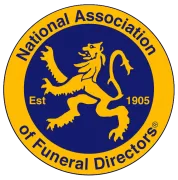Finding the right words after a bereavement
Every day, thousands of people die and it is said that on average about five people are affected by every death. Those people will always remember where and when they heard about the death of a significant loved one.
Friends and family desperately want to help, however they struggle sometimes to know how to do so or what to say. They are scared of getting it wrong or making it worse, and sometimes do nothing as it’s easier. More often than not, we wonder what we can say to help the person who has been bereaved while worrying whether we will upset them. Our words of comfort rarely seem enough in the circumstances. The most important thing to remember, is that saying something is better than not saying anything at all.
Death is one of the last great taboos. We ‘prefer’ it when the bereaved don’t show their distress.
This guide will provide some suggestions on how to speak to someone who has experienced a significant loss without upsetting or offending them. There are certain things you should never say before, during or after a funeral but it can sometimes be difficult to know what these are.
What to say before a funeral
When a death has occurred, it is important to acknowledge the loss when speaking to the person who has been bereaved. You are allowing them to be open about their feelings, if they choose to do so, rather than reminding them of their grief. A sympathy card, in addition, will also usually be welcome. Saying something like ‘I’m so sorry that [name] had died’ can be enough.
What to say at a funeral
Funerals are usually a difficult time for the close family of the deceased. Remember to be sensitive when speaking to them about the death of their loved one. When attending a funeral service, it is appropriate to offer your sympathy to the family. Something along the lines of ‘I’m sorry for the loss of your Dad/Mum [their name], they were always lovely to me and I will miss them very much’ would be fine if you are not sure what else to say. Remember to try and keep things personal about the person who has died.
What to say after a funeral
After a funeral, the family will remember the kind words of comfort from those that attended the service. There will be times when you are lost for words, or perhaps you are worried that you’ll upset the bereaved person by speaking about their loved one.
Remember the person who has died, might have been the bereaved person’s entire world so avoiding talking about them isn’t advisable. Encourage them to speak about their memories, their feelings and their loss even if they and you get upset.
At certain times of the year, significant anniversaries and public holidays, the grief will be more raw. It can be helpful to acknowledge this by saying ‘I imagine today is very difficult for you, if I can help by going for a walk and a coffee with you, I’d be happy to do that with you’.
If you are struggling with your grief or feeling lonely, remember that Tom Owen and Son hold a bereavement support group that covers Llandudno, Conwy and Colwyn Bay. The Coffee Connection takes place on the third Thursday of every month at 10am at Providero in Llandudno.
What not to say following a bereavement
In general, you should always avoid platitudes such as ‘they had a good life’ or ‘they are in a better place now’. You should try to recognise a person’s grief rather than minimising or trivialising it. So while the deceased person may have had a long, happy and meaningful life, to the person who has been bereaved their life could never have been long enough.
You should try to avoid saying ‘I know how you feel’ even if you yourself have been bereaved. You may know how you felt when you were bereaved but we all grieve differently and someone else may not feel the same way. This type of comment also shifts the focus of attention to you rather than them.
Additionally, lots of people say ‘if you need anything just let me know’. This puts the emphasis on the bereaved person to reach out for help, which while the intention is well-meaning, the effect isn’t always achieved. It would be better to be specific in your offer of help; offer to make them dinner, help with childcare or shopping, or offer practical help with paperwork.
Key tips on what to say following a bereavement
- Listen. This is the single most important thing you can do. Follow the lead of the bereaved and if they want to talk let them.
- Move towards the bereaved person not away. Perhaps even give them a hug.
- Be there for the long haul and not just immediately afterwards.
- Be honest.
- Be sensitive to their needs.
- Offer practical help such as going shopping, meeting for a coffee or making them dinner.







